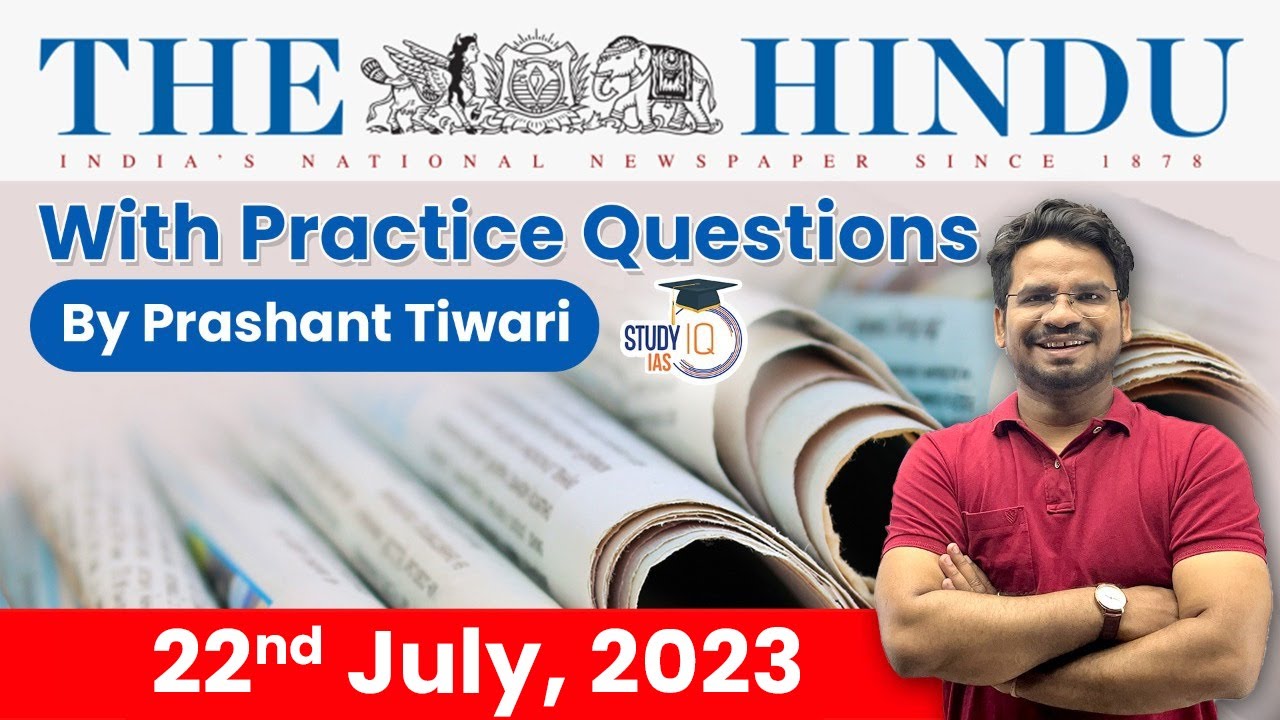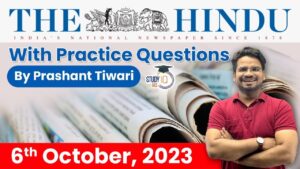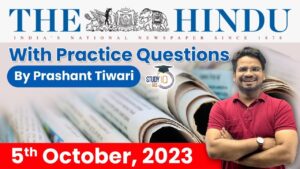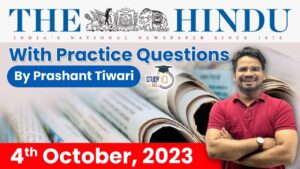The Hindu Newspaper Analysis for UPSC

The Hindu Newspaper Analysis 21 July 2023

- The 13th Amendment was enacted after the Indo-Lanka Accord of 1987, and it remains the only legislative guarantee of power devolution to the provinces.
- Indo-Lanka Accord 1987 was signed by the then Prime Minister Rajiv Gandhi and President J.R. Jayawardene, to resolve Sri Lanka’s ethnic conflict that had aggravated into a full-fledged civil war, between the armed forces and the Liberation Tigers of Tamil Eelam, which led the struggle for Tamils’ self-determination and sought a separate state.
- There are strong cultural ties between the two countries, with many Sri Lankans tracing their heritage to India. Buddhism, which originated in India, is also an important religion in Sri Lanka.
- Economic ties: India is Sri Lanka’s third largest export destination, after the US and UK. More than 60% of Sri Lanka’s exports enjoy the benefits of the India-Sri Lanka Free Trade Agreement. India is also a major investor in Sri Lanka.
- Foreign Direct Investment (FDI) from India amounted to around USD 1.7 billion over the years from 2005 to 2019.
- Defence: India and Sri Lanka conduct joint Military (Mitra Shakti) and Naval exercise (SLINEX).
- Participation in Groupings: Sri Lanka is also a member of groupings like BIMSTEC (Bay of Bengal Initiative for Multi-Sectoral Technical and Economic Cooperation) and SAARC in which India plays a leading role.

- How can our news media be safeguarded against the market power of domineering search engines, social media giants, and other so-called ‘big tech’ players mediating the digital economy? This is a classic public interest matter since the quality, diversity, and sustainability of publishers is of direct and immediate consequence to a user of digital news.
- Platforms unilaterally define the measures of the quality and popularity of online news; they arbitrarily change measures to suit their own priorities, often after imposing them on publishers in the first place.
- In 2021, Australia tackled this by proposing a mechanism to govern the interaction between publishers and platforms. But the platforms retaliated. Facebook blocked its Australian users from accessing thousands of news sites, which included vital sources of public information during rampant wildfires and the COVID-19 pandemic.
- Nevertheless, their overarching aim is to correct the twin imbalances: ensure news outlets sharing their content through search engines, social media, or aggregators get a fair share of digital advertising revenues, and get visibility over the data generated by platforms from selling and distributing online news.

- Internet shutdown orders are governed under the Temporary Suspension of Telecom Services (Public Emergency or Public Safety) Rules, 2017, under the Indian Telegraph Act, 1885.
- The 2017 Rules provide for temporary shutdown of telecom services in a region on grounds of public emergency and give senior bureaucrats from the Home Ministry at the central and state levels the power to order shutdowns.
- The 1885 Act empowers the central government to regulate various types of telecom services including internet services and grant licenses for them.
- In Anuradha Bhasin vs Union of India (2020), the Supreme Court ruled that an indefinite suspension of internet services would be illegal under Indian law and that orders for internet shutdown must satisfy the tests of necessity and proportionality.



- The Supreme Court on Friday said it cannot direct the Centre to include Rajasthani as an official language in the Eighth Schedule of the Constitution. A Bench headed by Chief Justice of India D.Y. Chandrachud said the subject of the petition concerns a policy matter.
- It lists the official languages of the republic of India. Part XVII of the Indian constitution deals with the official languages in Articles 343 to 351.
- The Constitutional provisions related to the Eighth Schedule are:
- Article 344: Article 344(1) provides for the constitution of a Commission by the President on expiration of five years from the commencement of the Constitution.
- Article 351: It provides for the spread of the Hindi language to develop it so that it may serve as a medium of expression for all the elements of the composite culture of India.
- However, It can be noted that there is no fixed criteria for any language to be considered for inclusion in the Eighth Schedule.
- Official Languages:
- The Eighth Schedule to the Constitution consists of the following 22 languages:
- Assamese, Bengali, Gujarati, Hindi, Kannada, Kashmiri, Konkani, Malayalam, Manipuri, Marathi, Nepali, Oriya, Punjabi,Sanskrit, Sindhi, Tamil, Telugu, Urdu, Bodo, Santhali, Maithili and Dogri.
- Of these languages, 14 were initially included in the Constitution.
- Sindhi language was added by the 21st Amendment Act of 1967.
- Konkani, Manipuri, and Nepali were included by the 71st Amendment Act of 1992.
- Bodo, Dogri, Maithili, and Santhali were added by the 92nd Amendment Act of 2003 which came into force in 2004.
- Classical Languages:
- Currently there are six languages that enjoy the ‘Classical’ status in India:
- Tamil (declared in 2004), Sanskrit (2005), Kannada (2008), Telugu (2008), Malayalam (2013), and Odia (2014).
- All the Classical Languages are listed in the Eighth Schedule of the Constitution.
- Guidelines:
- The Ministry of Culture provides the guidelines regarding Classical languages which are as given below:
- High antiquity of its early texts/recorded history over a period of 1500-2000 years;
- A body of ancient literature/texts, which is considered a valuable heritage by generations of speakers.
- The literary tradition is original and not borrowed from another speech community.
- The classical language and literature being distinct from modern, there may also be a discontinuity between the classical language and its later forms or its offshoots.


 The Hindu Newspaper Analysis 6 October 2...
The Hindu Newspaper Analysis 6 October 2...
 The Hindu Newspaper Analysis 5 October 2...
The Hindu Newspaper Analysis 5 October 2...
 The Hindu Newspaper Analysis 4 October 2...
The Hindu Newspaper Analysis 4 October 2...





















